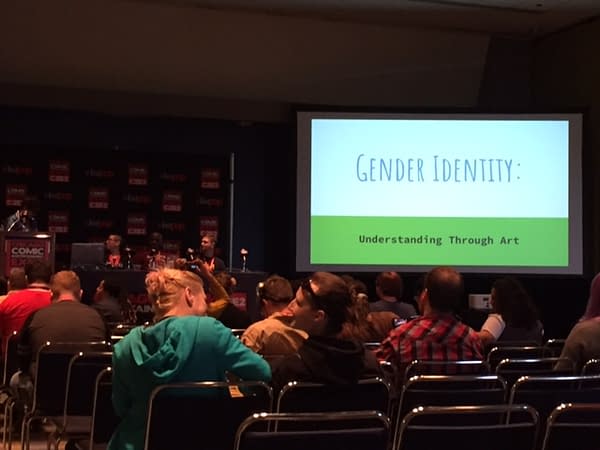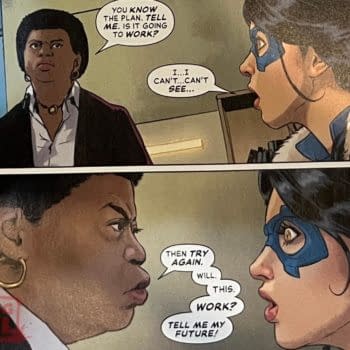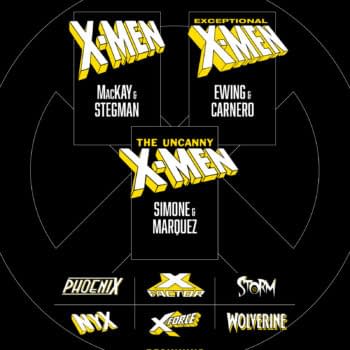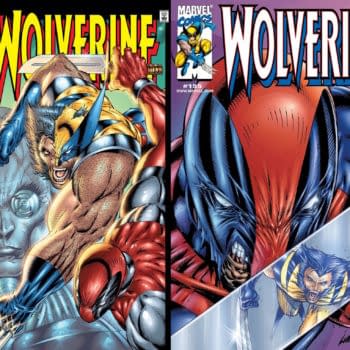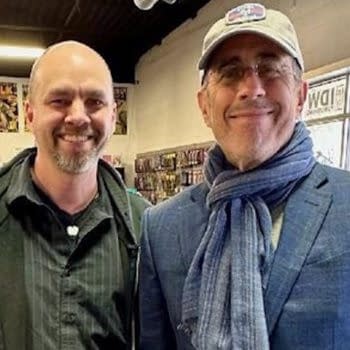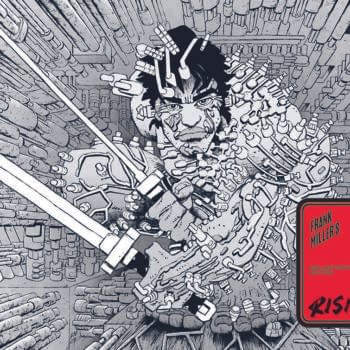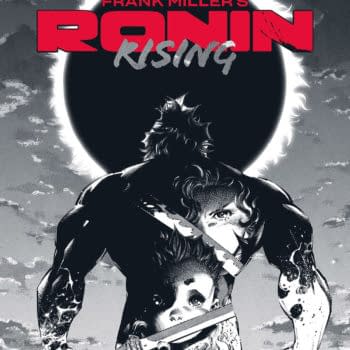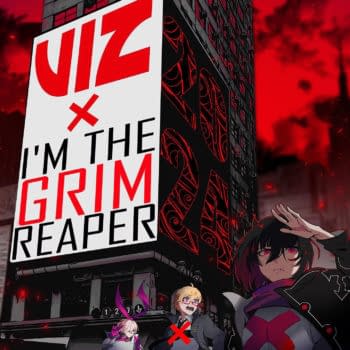Posted in: Comics | Tagged:
"None Of Us Are Binary In Our Daily Lives" – The Gender Identity Panel At C2E2
Don't you have it when you go to a comic convention for a website, and then realise you forgot to send a bunch of panel reports, sitting in your Out tray? That's what happened to David Pierce at C2E2. But that's okay David, better late than never! We'll be running these through the next couple of days…
"At the forefront of modern social debate is the nature of gender identity and how we move forward culturally with new understanding of the diversity within. Many contemporary graphic novels, directly and indirectly, address this debate by providing fictional and non-fictional representations of individuals expressing and explaining how the definitions of both identity and gender have evolved." On Saturday morning at C2E2, the Gender Identity: Understanding Through Art panel gathered artists and critics to discuss the value of these texts to the conversation.
The panel was hosted by Izabel Gronski, a young adult librarian at the Oak Lawn Public Library and featured Caitlin Rosberg, a writer for the AV Club, Paste, and editor of the Ladies Night Anthology; writer Bilal Shelby; Katie Schenkel, writer of the graphic novels Moonlighter and The Cardboard Kingdom and contributor to Comics Alliance and The Mary Sue; and Jeff Pastiak, a guidance counselor at Oak Lawn Community High School.
Rosberg opened up the panel as substitute host for Gronski, who was caught in construction traffic on her way to C2E2. As a side note, I imagine that close to everyone found themselves caught in construction traffic at some point on their way to C2E2. I allowed myself an extra half-hour to get to McCormick Place on Friday and found that wasn't enough extra time. C2E2 will be a better experience for everyone once the Lake Shore Drive/Stevenson Expressway construction project is finished.
Digression aside, Rosberg opened by discussing the use of personal pronouns, explaining that there are no universally accepted definitions of the pronouns people use to self-identify and that both the AP Manual of Style and the Chicago Manual of Style list They/Their as accepted personal pronouns. Schenkel added that there is a long journalistic tradition of using They/Their as personal pronouns when gender identity is unknown or unclear. She added that it was important to respect people, likening the use of personal pronouns to people's names.
I'm going to make another digression here. I'm a 57-year old straight white male. If I can understand the importance of this, anyone can. If someone introduces themselves as Jim, only an idiot would respond by saying 'Sorry, your birth certificate says your name is James, so I'm going to call you that.'
Rosberg then asked the panel what brought them into comics, saying that she read her father's comics and loved Mystique due to the fluidity of her character. Shelby had a similar experience with the X-family, saying all mid-90s black characters were aggressive males carrying tons of guns he couldn't relate to, but when he discovered Storm he could identify with her on a spiritual level.
Both Schenkel and Pastiak came to comics late, with Schenkel saying she was put off by both the art in comics in the 90s and that there was too much binary presentation. She added that she would still like to see more trans characters where the fact that the character was trans wasn't the focus of their power. Pastiak said that reading Fun Home was a wow moment for him, the first time he realized that comics could be more than simple stories but could actually provide an in-depth discussion of nuanced issues.
After Gronski was able to make it to McCormick Place, the panel then moved to a discussion of comics that do a good job of discussing gender identity, separating the conversation into discussions of comics aimed at young adults, adults, and webcomics. The young adult books the panel felt did a good job included Squirrel Girl, Backstagers, Lumberjanes, and Batgirl. Rosberg lauded Squirrel Girl's Koi Boi as an example of a trans character whose power was not based on him being trans. Shelby stated that he felt Lumberjanes was a great book to begin addressing gender identity issues with people. Pastiak stressed how important it was for his students with gender identity issues to have books they can related to, books where they see themselves reflected. Rosberg did note that there did seem to be a skew towards female trans characters and that there was a lack of supportive adult figures even in books that handle trans identity well.
Moving to comics aimed at an older audience, the panel cited Angela Asgard's Assassin and Angela Queen of Hel, The Pride by Bleeding Cool's Joe Glass, Transposes, Flutter, and both the Beyond Anthology and the Love is Love anthology. Webcomics mentioned included O Human Star, As The Crow Flies, and Goodbye to Halos. Later in response to an audience question, Schenkel mentioned the Comics Alliance Webcomic Q&A column as a place to find links to webcomics discussing gender identity issues.
When asked why some comics didn't handle gender identity issues well, the panel cited a lack of representation among the creators as the primary reason. The more representation among creators, the greater the likelihood of a book featuring authentic experiences. Pastiak again mentioned how important it was for authentic experiences, allowing readers to recognize themselves and regard their own experiences as normal. He added that it was important to think of people complexly, stating that none of us are binary in our daily lives.
The panel also stressed the importance of creators being willing to listen to criticism, citing the way the creative team on the Batgirl of Burnside responded to criticism when a character was featured with negative stereotyped characteristics. The team listened to the criticism, processed it, and made changes to the book for the trade. Schenkel added that she too hadn't considered some of the concerns brought up about the issue in question and said she was glad she didn't immediately comment on the concerns.
Although time was running short, the panel did open up for a couple of audience questions. One questioner asked for additional resources, prompting Schenkel's mention of Comic Alliances Webcomic Q&A column and leading other panelists to suggest looking for YouTube trans artists or following trans individuals on Twitter. Another questioner asked how cis people can help explain gender to friends and family. The panel stressed the importance of immediately shutting down any bigotry they might encounter from friends and family, not hesitating when faced with the question, and explaining the importance of personal identity and respecting people.


